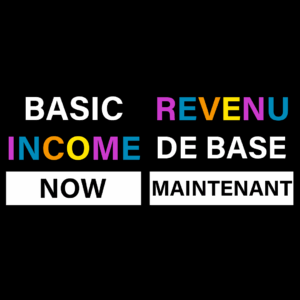We have been touting the potential benefits of a targeted, means-tested Basic Income program in these bulletin articles for several months. We see it as the best, most efficient and economical means of lifting our neighbours and their families out of need and onto a path to healthier, more productive lives. This benefits not only struggling families but entire communities and society as a whole.
Some critics would have us believe that a Basic Income program is risky.
“Where has this been tried?”
“What were the results?”
We have some examples and studies to inform us of the policy’s real benefits.
In the 1970’s Manitoba piloted ‘Mincome’, a Basic Income program in the community of Dauphin, population 10,000. After the four-year experiment, the participants realized measurably better health outcomes, achieved higher levels of education and demonstrated no disincentive to maintain employment.
Ontario established what was to be a three-year Basic Income pilot program in 2018, but it was abruptly cancelled one year later due to a change in government. Interviews conducted by the Carleton University School of Social Work identified that the participants reported better nutrition, lower stress levels, improved housing options and improved relationships. Participants also commented on the security and freedom afforded by a less bureaucratic and confusing administrative regime and the ability to keep earned income.
Since 2021 PEI has established a Targeted Basic Income Program (T-BIG) that tops up social assistance rates to 85% of the market-basket poverty measure for an eligible group of social assistance recipients. It has produced such positive results that PEI is now negotiating with the federal government to partner in a 5-to-7-year pilot project in the province for all residents living below the poverty line.
Finland conducted a two-year pilot project in 2017 – 2018. Employment statistics between the control group and the group receiving Basic Income were essentially the same. Critics point to this as a failure of the project to produce higher employment rates among the recipients. On the other hand, advocates highlight the fact that the program did not discourage people to work. In addition, the Basic Income recipients reported much higher rates of mental and physical well-being. This would suggest long term economic benefits if the program was sustained over a prolonged period.
In the United States, small limited Basic Income pilots were conducted in Stockton, California and Hudson, New York. Both pilots demonstrated that although recipients were not employed at a higher rate than non-recipients, they tended to migrate to better paying jobs and more fulltime employment. This was due to the opportunity to improve their skills through retraining and having the time to search for better jobs. They also reported better physical and mental health outcomes.
In summary, Basic Income is an appropriate poverty reduction solution that reaps benefits in both the short and long-term. It provides immediate relief to individuals and families struggling to feed and house themselves, stimulating local economies.
In the longer term, it provides a more effective and efficient means of providing a decent standard of living to those seeking employment. It improves the lives of those employed in the ever-growing, largely unregulated ‘gig’ economy where wages and hours of work fluctuate precariously.
Advocates proclaim Basic Income to be a concept that can be viewed as an “evolution” in social policy, not a “revolution”! It is a program that provides a “hand up” to help people improve their lives, rather than a “hand-out” that does little to change the status quo.
If you’re convinced, let it be known. The Rights Defense Circle has prepared a letter that you can adapt and send to your elected officials. We all know elections are coming, now’s the time to share our convictions!
Danny Bourne
Advocacy Circle









